
Year 714 (DCCXIV) was a common year starting on Monday of the Julian calendar. The denomination 714 for this year has been used since the early medieval period, when the Anno Domini calendar era became the prevalent method in Europe for naming years.
The 740s decade ran from January 1, 740, to December 31, 749.
The 710s decade ran from January 1, 710, to December 31, 719.

Year 742 (DCCXLII) was a common year starting on Monday of the Julian calendar, the 742nd year of the Common Era (CE) and Anno Domini (AD) designations, the 742nd year of the 1st millennium, the 42nd year of the 8th century, and the 3rd year of the 740s decade. The denomination 742 for this year has been used since the early medieval period, when the Anno Domini calendar era became the prevalent method in Europe for naming years.

Year 755 (DCCLV) was a common year starting on Wednesday of the Julian calendar. The denomination 755 for this year has been used since the early medieval period, when the Anno Domini calendar era became the prevalent method in Europe for naming years.
Year 636 (DCXXXVI) was a leap year starting on Monday of the Julian calendar. The denomination 636 for this year has been used since the early medieval period, when the Anno Domini calendar era became the prevalent method in Europe for naming years.
Year 746 (DCCXLVI) was a common year starting on Saturday of the Julian calendar. The denomination 746 for this year has been used since the early medieval period, when the Anno Domini calendar era became the prevalent method in Europe for naming years.

Year 756 (DCCLVI) was a leap year starting on Thursday of the Julian calendar, the 756th year of the Common Era (CE) and Anno Domini (AD) designations, the 756th year of the 1st millennium, the 56th year of the 8th century, and the 7th year of the 750s decade. The denomination 756 for this year has been used since the early medieval period, when the Anno Domini calendar era became the prevalent method in Europe for naming years.

Year 762 (DCCLXII) was a common year starting on Friday of the Julian calendar, the 762nd year of the Common Era (CE) and Anno Domini (AD) designations, the 762nd year of the 1st millennium, the 62nd year of the 8th century, and the 3rd year of the 760s decade. The denomination 762 for this year has been used since the early medieval period, when the Anno Domini calendar era became the prevalent method in Europe for naming years.

Year 778 (DCCLXXVIII) was a common year starting on Thursday of the Julian calendar, the 778th year of the Common Era (CE) and Anno Domini (AD) designations, the 778th year of the 1st millennium, the 78th year of the 8th century, and the 9th year of the 770s decade. The denomination 778 for this year has been used since the early medieval period, when the Anno Domini calendar era became the prevalent method in Europe for naming years.
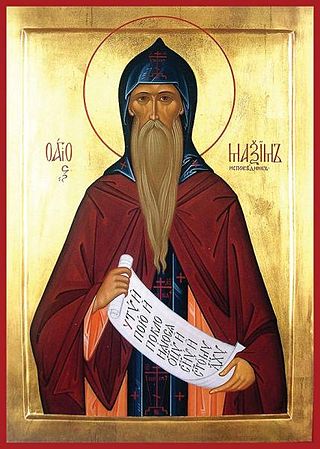
Year 662 (DCLXII) was a common year starting on Saturday of the Julian calendar. The denomination 662 for this year has been used since the early medieval period, when the Anno Domini calendar era became the prevalent method in Europe for naming years.

Year 652 (DCLII) was a leap year starting on Sunday of the Julian calendar. The denomination 652 for this year has been used since the early medieval period, when the Anno Domini calendar era became the prevalent method in Europe for naming years.

Year 701 (DCCI) was a common year starting on Saturday of the Julian calendar, the 701st year of the Common Era (CE) and Anno Domini (AD) designations, the 701st year of the 1st millennium, the 1st year of the 8th century, and the 2nd year of the 700s decade. The denomination 701 for this year has been used since the early medieval period, when the Anno Domini calendar era became the prevalent method in Europe for naming years.
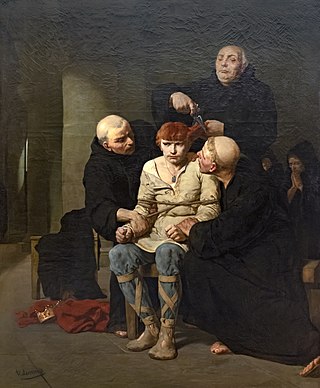
Year 737 (DCCXXXVII) was a common year starting on Tuesday of the Julian calendar. The denomination 737 for this year has been used since the early medieval period, when the Anno Domini calendar era became the prevalent method in Europe for naming.
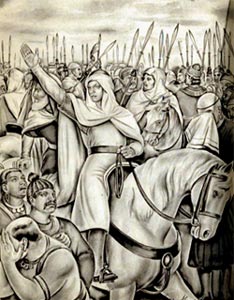
Year 711 (DCCXI) was a common year starting on Thursday of the Julian calendar. The denomination 711 for this year has been used since the early medieval period, when the Anno Domini calendar era became the prevalent method in Europe for naming years.
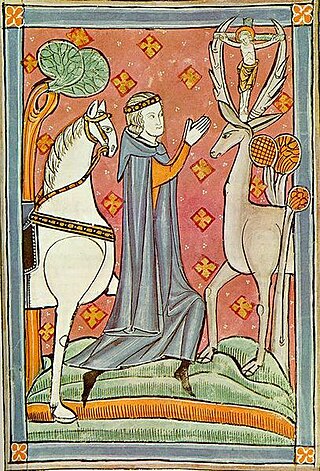
Year 727 (DCCXXVII) was a common year starting on Wednesday of the Julian calendar. The denomination 727 for this year has been used since the early medieval period, when the Anno Domini calendar era became the prevalent method in Europe for naming years.

Year 713 (DCCXIII) was a common year starting on Sunday of the Julian calendar, the 713th year of the Common Era (CE) and Anno Domini (AD) designations, the 713th year of the 1st millennium, the 13th year of the 8th century, and the 4th year of the 710s decade. The denomination 713 for this year has been used since the early medieval period, when the Anno Domini calendar era became the prevalent method in Europe for naming years.

Year 643 (DCXLIII) was a common year starting on Wednesday of the Julian calendar. The denomination 643 for this year has been used since the early medieval period, when the Anno Domini calendar era became the prevalent method in Europe for naming years.

Year 733 (DCCXXXIII) was a common year starting on Thursday of the Julian calendar. The denomination 733 for this year has been used since the early medieval period, when the Anno Domini calendar era became the prevalent method in Europe for naming years.
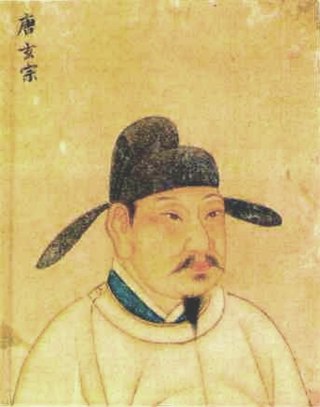
Year 730 (DCCXXX) was a common year starting on Sunday of the Julian calendar. The denomination 730 for this year has been used since the early medieval period, when the Anno Domini calendar era became the prevalent method in Europe for naming years.
















